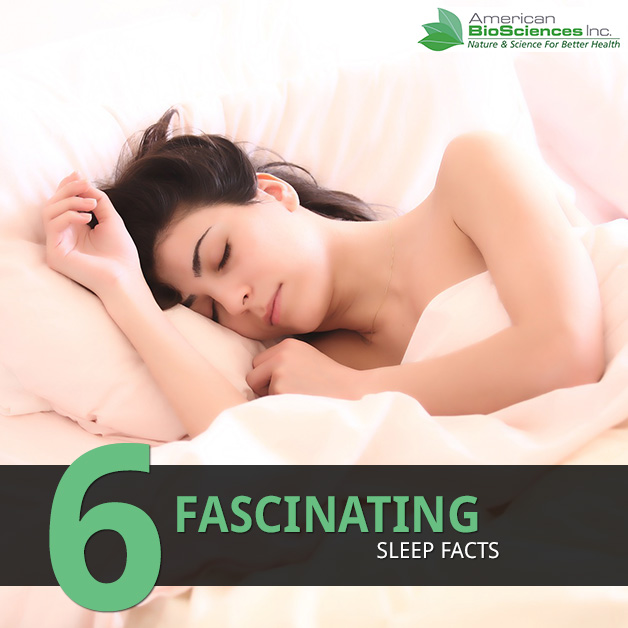
10 Jul 6 Fascinating Sleep Facts
Sleep is an important part of any person’s lifestyle, and if you’re getting too little sleep, your body is sure to let you know. In fact, humans spend roughly one-third of their lives sleeping in order to refresh their bodies. Sleep can range from just an hour or two in some species to as much as 20 hours in others. Humans fall squarely in the middle, needing roughly seven to nine hours of sleep a night in order to feel refreshed and function on a normal level. Sleep is such a critical component of life that in the short term, going without sleep is more likely to kill you than not eating. Outside of knowing when you haven’t had enough sleep, how much do you really know about sleep and the effect that it can have on your body? Check out the following six fascinating facts about sleep.
#1 Humans are the only species that willingly and intentionally delays sleep.
If you’ve ever stayed up too late or opted to go out instead of taking that much needed nap, then you’re willingly putting off sleep. Unlike other animals, we’re the only species that will intentionally do this. All other animals, including your dog, will never willingly make the choice to skip so much needed sleep.
#2 Being awake for 16 hours or more decreases your alertness the to the same level as if you had a 0.05 percent blood alcohol level.
There’s been a long heated debate on whether it’s more dangerous to drive sleep-deprived or to drive with a blood alcohol level just at the legal limit of 0.08 percent. While the verdict is still out on that one, it can be said that they have comparable consequences and both reduce your reaction times. Needless to say, don’t drink and drive, and make sure you get plenty of sleep before driving as well.
#3 In the 1800s, getting up in the middle of the night was normal. People traditionally used the few hours in between two sleeping spurts for other activities.
Our bodies are geared to sleep in two distinct sleep cycles, each lasting about four hours. During this time the body goes into REM sleep and then comes back out. Often people would get up for a couple of hours for reading, prayer, personal relations, or other short activities before getting in their second REM cycle.
#4 Sleep and leptin, the hunger suppressing hormone, have an inverse relationship.
It’s surprising how closely tied getting sleep is with hunger suppression. The hormone leptin helps to suppress your hunger urge, but if you’re not getting enough sleep, your body doesn’t produce enough leptin and you find yourself hungrier.
#5 Twelve percent of people dream in black and white.
Before the invention of color television, it’s thought that roughly 15 percent of the population dreamt in color. With the prominence of the color TV, over 75 percent of the population now dreams in color, and the rest, at roughly 12 percent, still dream in black and white.
#6 High earners get some of the best sleep.
This may not come as a surprise to many people, but high income individuals are said to get the best sleep. This statistic looked at the quality of sleep that individuals got and if you fell into a pay grade above roughly $85,000 a year, you tended to get better sleep than those who made less money. If you’re making that much money, we bet you have less to worry about in terms of financial security than those making less, allowing you to rest a little easier.
If you struggle to get to sleep or stay asleep, but are looking for a non-addictive, natural health supplement, opt for SLEEPSolve 24/7 to give you a helping hand.

